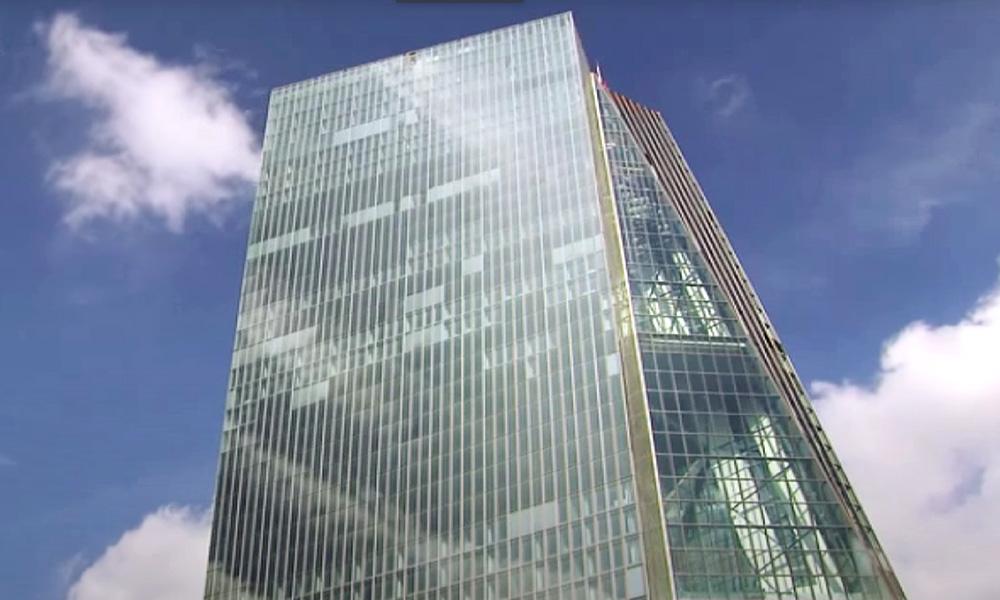ECB remains on hold as optimistic outlook downplays rate cut expectations
2025-09-12 00:55:54

Interest rates remain unchanged, with an optimistic tone prevailing
The ECB decided to keep its key interest rate at 2% at its Governing Council meeting on September 11, 2025, extending its policy of pausing rate cuts since June. The ECB had already halved its interest rate over the past year.
"We continue to be in good shape, inflation is where we want it and the region's economy is performing solidly," said ECB President Christine Lagarde at a press conference. She pointed out that the eurozone economy has shown resilience, with manufacturing and services continuing to expand and private consumption supporting growth.
Lagarde stressed that global trade uncertainty has eased, especially after the EU and the US reached a partial tariff agreement, which significantly reduced the risk of trade retaliation. This provides the ECB with more time to assess the impact of external factors such as US tariff policies, increased German government spending, the Federal Reserve's upcoming interest rate cuts, and political turmoil in France on the eurozone economy.
The market's optimistic interpretation of the ECB's policy pushed the euro slightly higher against the US dollar, with the euro trading at 1.1733 against the US dollar, up 0.34%. Goldman Sachs economists said that the ECB's cautious stance reflects its prudent response to global economic uncertainties, further reducing the possibility of a rate cut in the short term.
Inflation below target, central bank downplays impact
The ECB's latest forecast shows that inflation will fall to 1.9% in 2027, lower than the 2.0% forecast in June, and core inflation is expected to be 1.8%, both below the central bank's 2% target.
Lagarde said that even the smallest inflation deviation would not be enough to trigger policy adjustments unless it persisted for a long time. She attributed the below-target inflation to the lagged effect of the appreciation of the euro exchange rate and stressed that this was already clear in the central bank's strategic review.
Portfolio manager Konstantin Veit said: "The ECB's response mechanism is not designed to fine-tune policy, and the policy interest rate is expected to remain stable for a long time." Some market analysts believe that the ECB may only cut interest rates once more before the spring of 2026.
Risks balanced, interest rate cut discussion postponed
Lagarde said downside risks to economic growth were now "more balanced" than in June, noting that the risk of retaliatory tariffs in Europe and trade uncertainty had "dropped off the radar screen."
However, the inflation outlook remains "more uncertain than usual" and the process of disinflation is slow. Lagarde pointed out that the Federal Reserve's interest rate cuts may put downward pressure on prices by pushing up the euro exchange rate, and the rise in government bond yields caused by political turmoil in France also poses new challenges to the central bank.
Sources revealed that the ECB's internal discussion on rate cuts has not yet ended, but it will take several months to collect more data, and the December meeting may be the next key discussion point. Money markets currently expect the probability of the last rate cut before the spring of 2026 to be only 40%, lower than expected before Thursday's decision.
Hawkish members of the Governing Council emphasized the resilience of the economy and robust consumption, supporting the maintenance of current interest rates, while dovish members expressed concern about the potential drag on economic growth from tariffs. While the rise in bond yields caused by political uncertainty in France has not yet reached the "disorderly" threshold for central bank intervention, the market remains wary of its long-term impact.
The Situation in France and the Eurozone Bond Market
Recent political turmoil in France has pushed up the country's bond yields, drawing market attention. Christine Lagarde stated that the Eurozone sovereign bond market is currently "well-ordered and liquidity is smooth," suggesting no immediate intervention is needed. Economists believe that given France's high debt and low growth, the current situation does not meet the conditions for central bank intervention.
French political risks could be transmitted to other Eurozone countries through financial markets, complicating the ECB's future policymaking. Morgan Stanley economists say volatility in the French bond market could have a greater impact on the Eurozone economy by early 2026 and warrants close monitoring.
Market reaction and outlook
The ECB's optimistic stance has reduced market bets on a rate cut. Lagarde said of market expectations: "We monitor the market and factor it into our forecasts, but we are neither happy nor unhappy about it." She reiterated that the central bank will continue to make decisions based on data rather than market pricing.
Eurozone 10-year government bond yields fell slightly after the decision was announced, reflecting market recognition of the central bank's prudent policy. UBS analysts expect the ECB to keep interest rates stable until mid-2026 unless external shocks significantly worsen the economic outlook.
Summarize
The European Central Bank's September 11th decision underscored its confidence in the eurozone's economic resilience and inflation outlook, downplaying the need for further interest rate cuts in the near term. Despite inflation forecasts slightly below target, the central bank did not see the need for an immediate policy adjustment. Faced with uncertainties surrounding global trade, French politics, and Federal Reserve policy, the ECB opted to remain on hold, preserving flexibility for future decisions.
The market and analysts generally expect that interest rates will remain the same for a long time, and the December meeting may become the next key node.
- Risk Warning and Disclaimer
- The market involves risk, and trading may not be suitable for all investors. This article is for reference only and does not constitute personal investment advice, nor does it take into account certain users’ specific investment objectives, financial situation, or other needs. Any investment decisions made based on this information are at your own risk.





















